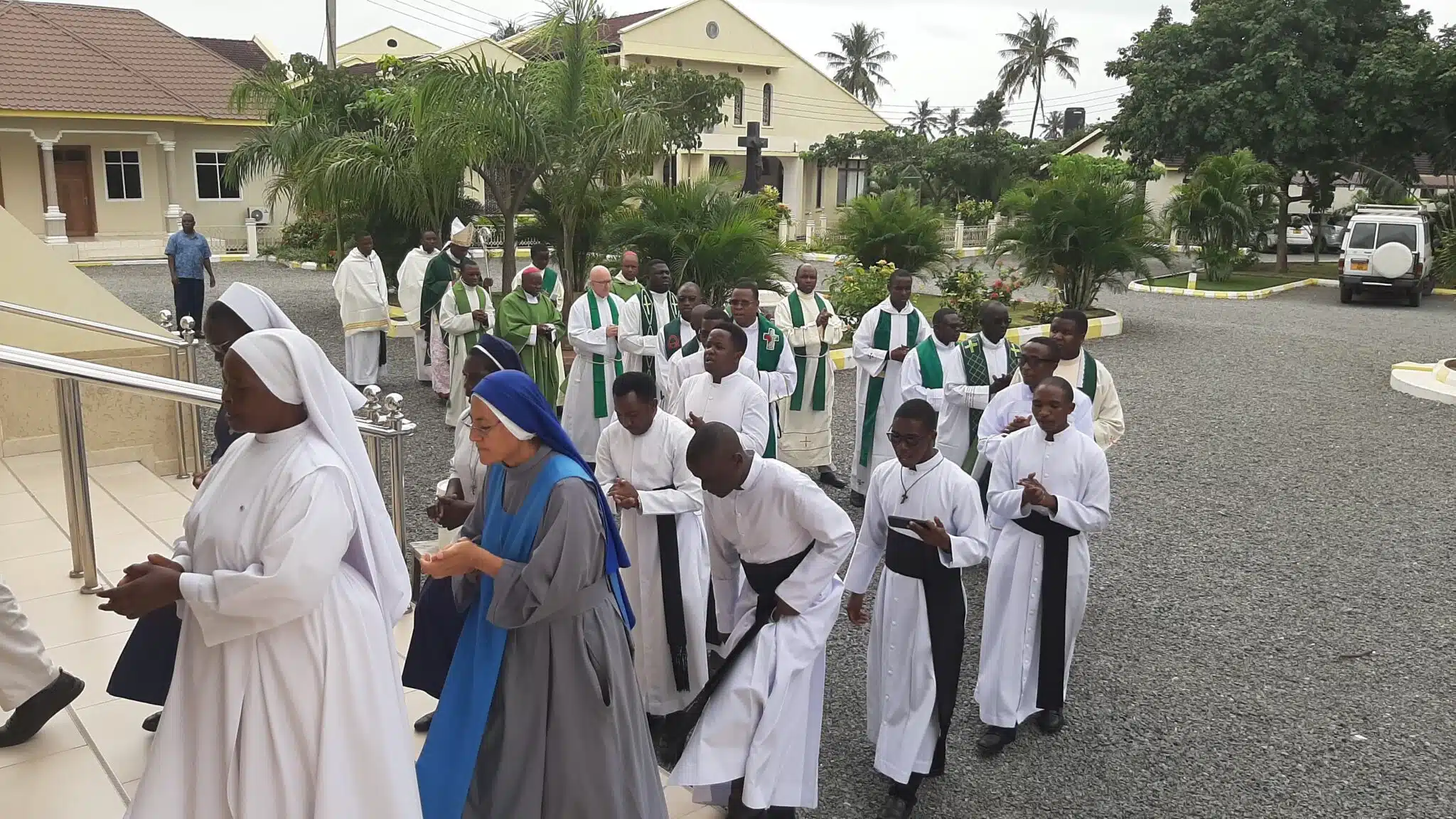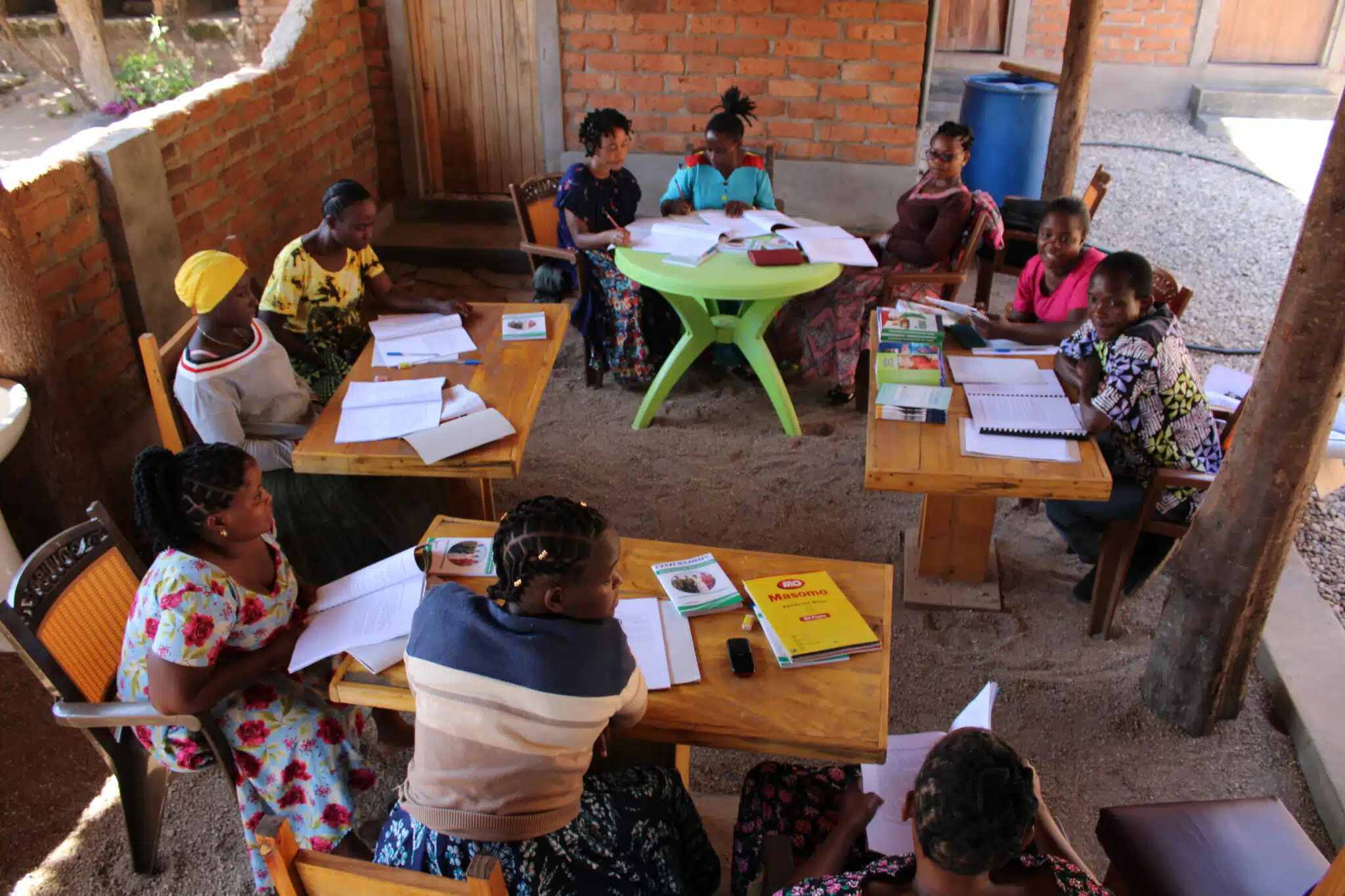Tanzania’s Declining Birthrate is “Heart Problem,” Says Global Catholic Ministry
Contact: Tom Ciesielka, TC Public Relations, 312.422.1333, tc@tcpr.net
(August 5, 2024 – Front Royal, Virginia) Tanzania is facing a crisis, according to Human Life International, the world’s largest pro-life global Catholic ministry. The country’s birthrate has been steadily plummeting over the past 75 years, making it a prime example of the evident population decline throughout Africa. Add to that an incredibly high abortion rate, and Tanzania’s decline sets the stage for future catastrophe in the developing nation, according to researchers at Human Life International.
“What we are facing is not an economic or a social problem. What we are facing is a heart problem, a spiritual problem,” stated Fr. Shenan Boquet, President of Human Life International.
For thirty years, Human Life International Tanzania has been working to foster a culture of life in this East African country. Leadership from around the world gathered in the capital of Dar es Salaam, to celebrate the milestone and secure a strong foundation for future ministry in the region.
Human Life International’s work with priests and seminarians is foundational in Tanzania, where more than half of the almost 70 million populace practices Christianity, more than a third as Catholics. The disconnect is that the Catholic Church is doctrinally and unapologetically pro-life, yet Tanzania’s abortion rate is among the top 25 highest in the world, more than two and a half times that of the United States. This is despite having what abortion promoters label as among “the most restrictive laws in the world.”
Human Life International addresses this issue with a multipronged approach to education about families, babies, and the sanctity of human life. These programs begin with conveying an understanding of what God’s Word and the Catholic Church teach about human dignity and equips participants to take this message into their communities.

Human Life International Tanzania began training Catholic priests in 2002, at the Diocese of Mbulu and is currently working with seminarians at the major Catholic seminaries in Kipalapala, Segerea, and Peramiho. These clergy, and those training for the priesthood, generally come from a traditional African culture that values family and perceives children as blessings. However, they are ministering in communities that have been targeted by abortion-promoting organizations from the West, an environment for which Human Life International prepares and equips them. These men, now numbering almost 600, often go on the be influential sources of life affirming advocacy in their regions, such as Rt. Rev. Bishop Christopher Ndizeye, who after undergoing training by Human Life International in 2008, became Chaplain for the Seminarians for Life Chapter at Kipalala Major Seminary and now actively promotes a pro-life worldview as a Bishop in the Diocese of Kahama.
Human Life International works with students and educators to teach fetal development. The pro-life ministry’s youth-oriented chastity education started in 2000 and has been welcomed into the classroom at 200 schools, both secular and religious. Emil Hagamu, Regional Director of English-Speaking Africa at Human Life International, shared how at a recent visit to Canossa High School in Dar es Salaam, he spoke with 350 middle school students. Hagamu addressed chastity and God’s plan for human sexuality and showed them a video of a baby growing in its mother’s womb. The assembly ended with the youth pledging to live chastely and honor the sanctity of human life.
Because Tanzania, along with the rest of Sub-Saharan Africa, is a frequent target of population control efforts, the programs of Human Life International focus heavily on countering the western-funded promotion of abortion and contraception in the region. Hagamu, along with his Tanzanian team of counselors in more than 60 different education centers, works to stem the damage caused by this culture of death that claims to fight poverty, but in reality, according to Hagamu, “simply turns large poor families into small poor families.”
One of the most effective ways in which Human Life International Tanzania has honored and upheld African culture’s traditional welcome of children is through its Natural Family Awareness program. With love and respect for the family, trained counselors teach couples how to practice a form of family planning that strengthens marriages, and does not interfere with natural reproductive processes, promote disease, or act as an abortifacient. Close to 25,000 Tanzanian couples have adopted this life affirming practice since Human Life International Tanzania began its Natural Family Awareness program in 2019.
At the heart of Human Life International Tanzania is the focus on saving preborn babies from abortion. The organization’s worldwide training of priests, seminarians, nurses, midwives, educators, and laypeople revolves around the key tenet that all human life is precious. Human Life International Tanzania’s daily work with schools, churches, individuals, and families, concentrates on fostering a culture that helps mothers and families choose life for their children.

Human Life International leadership lauded the efforts of its Tanzanian team following a July 2024 anniversary gathering, at which Bishop Ndizeye presented awards for dedication to Human Life International Tanzania and the Gospel of Life.
Fr. Boquet observed, “Human Life International Tanzania’s 30th Anniversary celebration was a tribute to the people who had a vision to advance the Culture of Life and to those who, following their example, have created a life- and soul-saving movement across Tanzania and all English-speaking Africa.”
“As we have seen in the worldwide pro-life movement, one person’s vision and passion can be transformative,” Fr. Boquet continued, as he singled out Hagamu for being the impetus behind the lifesaving ministry in Tanzania. “Mr. Emil Hagamu played a crucial role in the founding and development of Human Life International Tanzania. In testimony to his contribution, many participants in the celebration called Emil ‘Baba,’ which means ‘father’ in Swahili, bestowing upon him the title, ‘father of the pro-life and family movement,’ in Tanzania and in many other English-speaking African countries – a title he rightly deserves.”
Dr. Brian Clowes, Human Life International Director of Education and Research, described Human Life International mission to Tanzania as “very fruitful.” Having travelled to Dar es Salaam for the anniversary event, Clowes and Fr. Boquet addressed a gathering of priests, doctors, teachers, and other leaders from eleven different nations. They spoke on the fundamentals of pro-life activism and specifically about the cultural environment in in Tanzania. Additionally, they presented to 200 students at the Rock Institute of Human Life Management Studies in Korogwe.
“Those we spoke with agreed that they felt greatly encouraged and better prepared to fight the culture of death in their own communities and in the nation at large,” Clowes reported.
About Human Life International
Human Life International is the only US-based authority on global life issues, including abortion, contraception, and end-of-life concerns. Human Life International is engaged in providing aid, training, and advocacy around the world and is the largest global pro-life and family organization, active in more than 100 countries on six continents. Human Life International provides resources and education on life issues from a Catholic perspective, while providing assistance around the globe, and prepares those training for and those active in ministry to address these matters in their vocation. For more information, visit hli.org.

